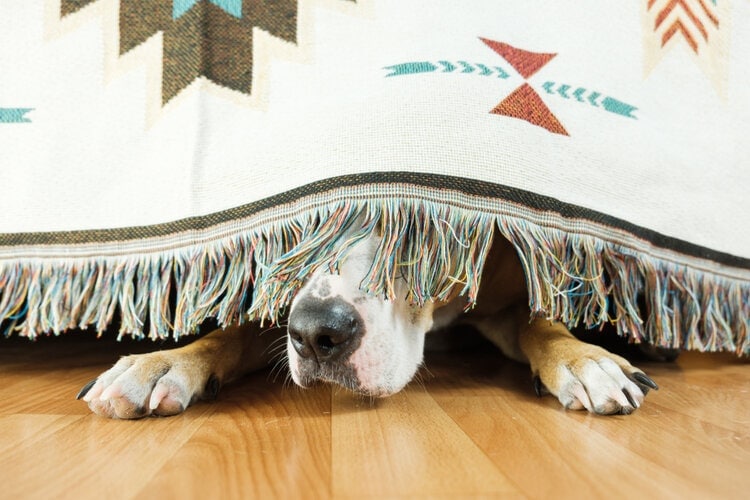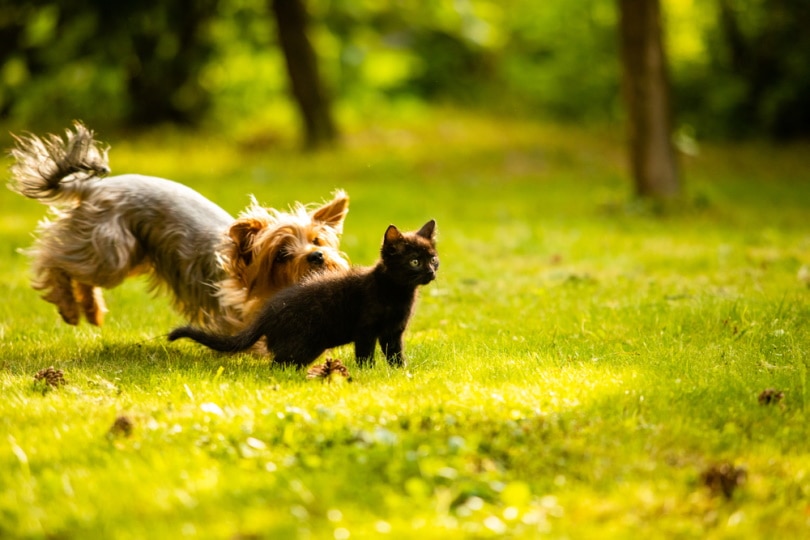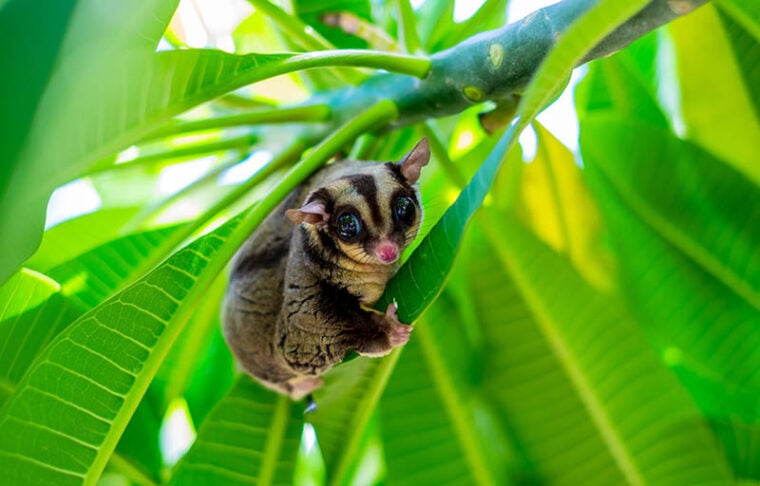
Sugar gliders are adorable. They are fast, energetic, and can easily turn into your favorite pet. For the most part, they are docile, obedient creatures. However, sugar gliders will bite you when stressed, scared, or anxious. So, do their bites hurt? Not really, sugar gliders’ bites don’t hurt! Instead, they feel more like an itch.
Are these bites frequent, though? This depends on its upbringing. If the pet comes from a professional breeder, it will rarely bite. But, as a sap-sucking creature, it relies heavily on nibbling to survive. That means the biting might not stop completely after you create a bond. But there is a way to keep it to a minimum. Here’s how you can do that!
What Does a Glider Bite Feel Like? Is It Painful?
For an adult man or woman, it mostly feels like a pinch. While sugar gliders do have sharp teeth (for chewing on insects and spiders), they’re not nearly as big, strong, or sharp to hurt a human. So, even if an angry glider leaves you with a dozen bites, you won’t be in any danger unless the skin is punctured. In that case, be quick to treat the wound with soap and an antiseptic.
The bite of an 8-week-old Joey doesn’t hurt a bit. A 16-week-old pet, however, will have more “oomph” to it. This is important: bites vary depending on how the glider feels about you. If it considers you a threat, the bites will be very aggressive. In contrast, when a sugar glider feels safe around its owner(s), the bites aren’t nearly as strong. In fact, the pet will only nip at you to show love and affection.
How Often Do These Creatures Bite?
In the wild, gliders use their teeth to sip on sap and nectar. That’s why biting comes naturally to them. For a pet glider, the frequency of the bites depends on whether it recognizes you as a friend or foe. When threatened, these animals either run away and hide or bite. Your goal as the owner should be to create a trusting relationship with the rope dancer.
That way, it will start to see your hands as a safe haven, not a hazard. With that, each glider is different. Some prefer to go really deep with their bites; others prefer to stick to the “death by a thousand bites” technique. There’s also an element of surprise here. Even if the two of you have a perfect relationship, you should still expect some occasional bites.

Can You Train a Sugar Glider to Stop Biting?
The short answer is yes, and again, it’s about creating a safe, positive space for the pet. As social creatures, gliders do best in the company of fellow possums. So, adopting two instead of one might be a great idea. The more relaxed and safer they feel, the easier it will be to train them. Besides, a “chill” glider won’t have many reasons to nip at you in the first place.
First, use positive reinforcement to start a healthy relationship. Next, see that your pet gets enough sleep. As nocturnal beings, gliders take naps while the sun is up. Do your best not to disturb their sleep! This won’t be easy if you have loud pets or children in the house, though. Spending some quality time is also very important. On average, sugar gliders need 1–2 hours of exercise daily to stay active and fit.
 The 5 Tips to Train a Sugar Glider to Stop Biting
The 5 Tips to Train a Sugar Glider to Stop Biting
1. Pay attention to odors
Gliders have an incredibly strong sense of smell. That means any strange, peculiar odors may set them off. This mostly applies if you just bought the glider home, of course. Give it some time, and the pet will quickly adapt to your cooking smells, shampoos, perfume, and other scents.
2. Understand their desires
We express our feelings through words. But with gliders, it’s the teeth that do the talking. Thus, if your pet is biting you, then it doesn’t like something that you do. Sometimes, they give out “warnings” through body language or sounds. Other times, it just means they’re hungry.
3. Go to a reputable breeder
In contrast to many dogs and cats, sugar gliders aren’t domesticated creatures (never have been). That’s why it’s so important to get one from a breeder that doesn’t only love these animals but also knows how to train them properly. That will make socializing much easier.

4. Use crates to teach a lesson
If the sugar glider keeps biting despite your best efforts, try putting them in a crate every time they do that. As wild animals, gliders don’t like to be caged. So, if you keep using this technique as a remedy against bites, soon, it should result in the desired effect.
5. Just don’t react to it
This might sound counterproductive, but if you let the rope dancer bite you without pulling your finger or yelling at it, eventually, it might stop seeing your hands as a threat. Saying a firm “no” could help as well, along with a “psst”. After that, the biting will turn into licking.
Do Gilders Like to Be Held?
This tiny pack of joy might look extra cute when held up in the air, but it won’t enjoy that. Limiting freedom is one of the worst things one can do to a glider. Instead, give it space and let the pet climb onto you when the time is right. Also, avoid sudden movements. Don’t rush things, and always keep in mind that sugar gliders take more time to warm up to their owners compared to feline and canine citizens.

 The 7 Reasons Sugar Gliders Bite
The 7 Reasons Sugar Gliders Bite
We just covered the effect that sounds, smells, and the environment have on gliders. But still, what about the emotions that dictate this unusual behavior? Do Petaurus breviceps bite their owners out of fear, anger, love, or confusion?
Here are the most common reasons for sugar glider bites:
1. It’s dictated by fear or anger
Sugar gliders aren’t exactly big, strong, and imposing. In nature, they’re more of a prey rather than a predator. That’s why these tiny creatures must keep their guard up 24/7, and any sudden moves, noises, or even strange odors might trigger a reaction. Biting is a defense mechanism for when they’re scared or angry.
2. The sugar glider is stressed
A relaxed, safe environment is important for sugar gliders. When it’s under stress all the time, even the most harmless things that you do could trick it into believing that it’s a threat. And the first response to that will be a quick bite (or multiple ones). Or it could be a health issue. Check with a vet to make sure.
If the possum is not properly socialized, any sudden touches will feel like a threat. Again, when provoked or frightened, sugar gliders either run away or bite the “enemy”. But, if you bought the pet from a good breeder, it will be mostly ok with you touching and grabbing it.
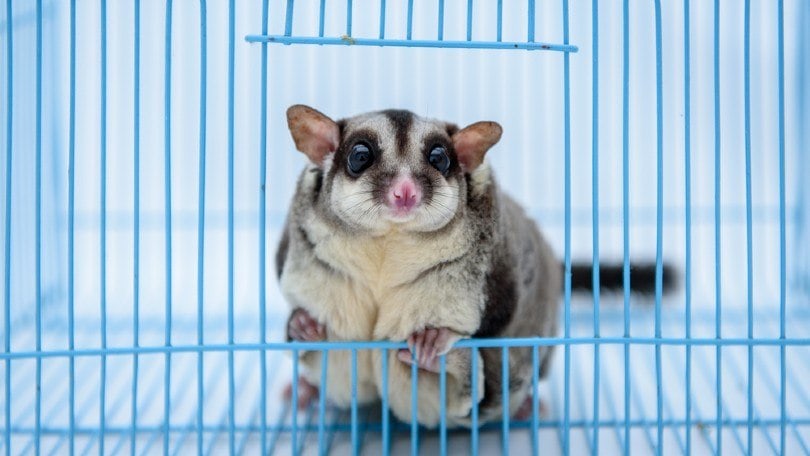
4. The glider doesn’t trust you much
Ouch! Well, it is what it is: if the bond isn’t strong, you might be rendered a foe rather than a friend. So, no matter how great the breeder was, it’s up to you to create a bond with the pet so that your hands are a safe space, not a potential hazard.
5. It wants to comfort you
This sounds weird, but when the glider is trying to put its teeth through your skin, it’s actually grooming you. You’ll instantly see (or, rather, feel) the difference between a scared, aggressive bite and one that’s full of affection and care. This is how sugar gliders comfort each other.
6. Your fingers look like food
To a tiny creature like a sugar glider, human fingers often look like delicious snacks. In the wild, they are always sipping on sap, and the only way to get it is to bite into the trees. Thankfully, it’s possible to fix this. Be instructive yet gentle when correcting the pet.
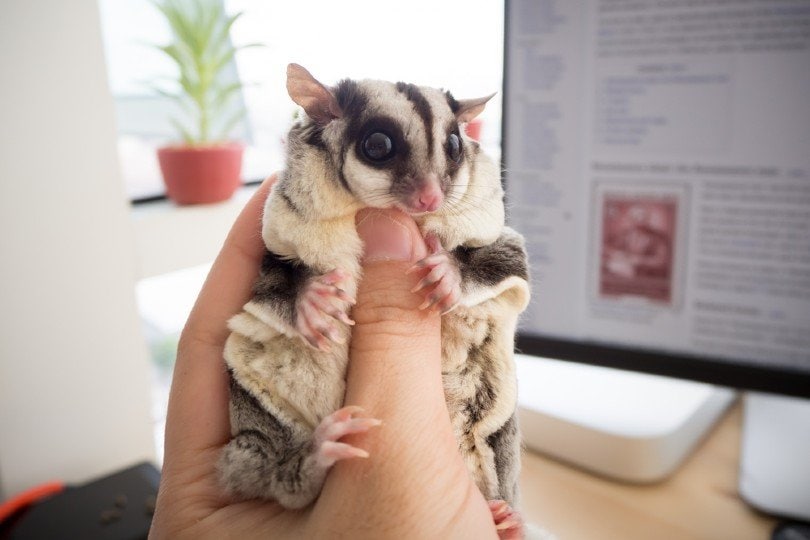
7. Blame it on hormones!
Just like teenage boys and girls, marsupials also go through a “phase”. And during that time, it’s almost impossible to tell what’s causing those bites. Just give it time: usually, they go back to their normal selves rather quickly.
Conclusion
Are you a sugar glider owner? Then you already know how gentle, loving, and all-around awesome these creatures are, despite the occasional bites. Besides, if you have a brick-strong bond, then those are love bites, not aggressive behavior. However, folks who have just adopted a glider might be a bit puzzled by its never-ending desire to bite their fingers.
But don’t worry: as long as the animal comes from a reputable breeder and you’re ready to put some effort into socializing it, the possum will quickly turn into your best bud. It’s all about creating a safe environment, keeping the pet happy, and “steering” it in the right direction through training. That’s all there is to it!
Featured Image Credit: Manop Boonpeng, Shutterstock




